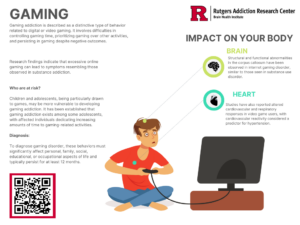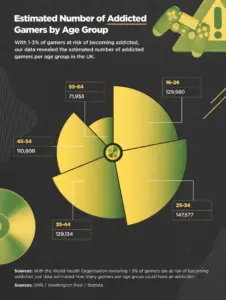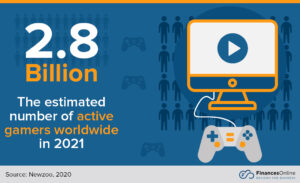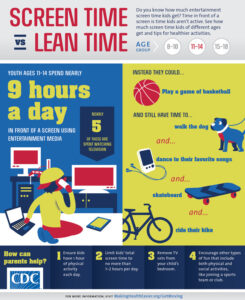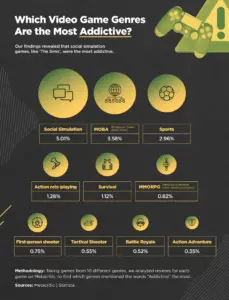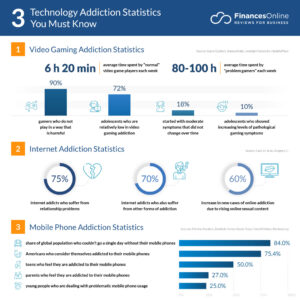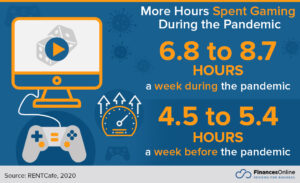Statistics on Gaming Trends in the United States
Gaming Addiction is described as a distinctive type of behavior related to digital or video gaming. This behavior is characterized by challenges in managing gaming time, giving higher importance to gaming over other activities, even at the expense of other interests and daily responsibilities, and persisting in gaming despite negative consequences. To diagnose gaming disorder, these behavioral patterns must have a substantial impact on personal, family, social, educational, or occupational aspects of life. Furthermore, these patterns usually need to be present for at least 12 months.1
Research findings indicate that excessive online gaming can lead to symptoms resembling those observed in substance addictions. Children and adolescents, being particularly drawn to games, may be more vulnerable to developing gaming addiction. It has been established that gaming addiction exists among some adolescents, with affected individuals dedicating increasing amounts of time to gaming-related activities. Consequently, problematic online gaming can be classified as a behavioral addiction rather than a disorder of impulse control. It is important to recognize and address the risks associated with excessive online gaming, particularly among younger populations.2
Fast Facts:
- In several studies involving adults across the US, UK, Canda, and Germany more than 86% of young adults ages 18 to 24 had recently played online games and more than 65% of all adults had recently played online games.3
- Approximately, 0.3% to 1.0% of the general population may qualify for diagnosis of internet gaming disorder (IGD).3
- A 2022 meta-analysis found a global prevalence of IGD of 10.4% among young adults. This is high when compared to other behavioral addictions, and IGD is said to have drastically increased since the COVID-19 pandemic.3
For more information, please visit: https://www.who.int/addictive-behaviours-gaming-disorder
1 World Health Organization. (2018). Gaming disorder. Retrieved on June 25, 2019, from https://www.who.int/features/qa/gaming-disorder/en/
2 Kuss, D. J., & Griffiths, M. D. (2012). Online gaming addiction in children and adolescents: A review of empirical research. Journal of Behavioral Addictions, 1(1), 3-22. https://doi.org/10.1556/jba.1.2012.1.1
3American Psychiatric Association. https://www.psychiatry.org/patients-families/internet-gaming


